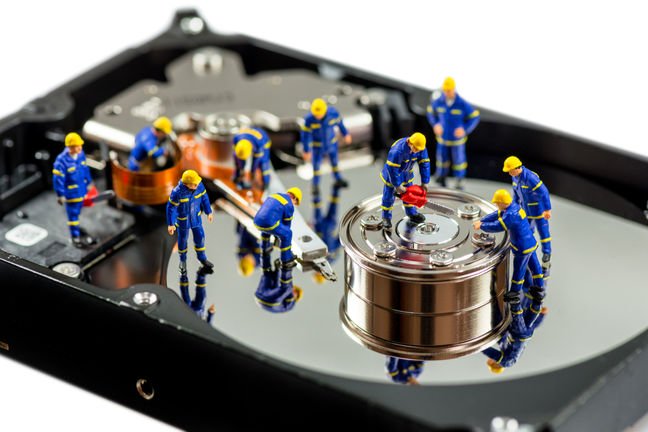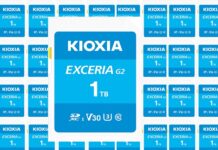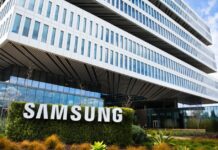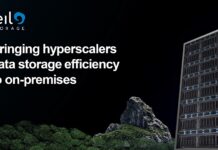Some storage suppliers and analysts are saying QLC (4bits/cell) flash drives can replace disk drives for enterprise data storage. For example, Wikibon, VAST Data and StorONE. Others say that such SSDs can replace disk drives in nearline storage arrays. An example of this viewpoint is Pure Storage and its FlashArray//C arrays.
HPE provides both all-flash arrays and hybrid flash/disk arrays. We asked the firm’s Omer Asad, VP & GM, HCI, Primary Storage and Data Management Services, about HPE’s view on SSD and HDD use, and whether one would replace the other in enterprise storage.
Blocks and Files: How does HPE see the use of SSDs and HDDs evolving in enterprises?

Omer Asad: SSDs are important in the primary storage space and whilst SSDs are becoming cheaper and cheaper, from growing benefits in production efficiencies, they are still more expensive on a $/GB basis when compared with HDDs and therefore we expect to continue to have hybrid models with HDD and SDDs for some time. Although it has been predicted for many years that SSDs will eventually replace HDDs, we still see a lot of value coming from the hybrid model.
Clearly a lot depends on the workload and specific use case, for example online transaction process workloads with higher performance requirements have already moved to all-flash and are not going back to HDDs, whereas HDD disk drive technology remains most cost-effective for long-term storage.
HDDs will continue to play an important role in data centres for secondary and tertiary, price sensitive application environments.
Pure HDD-based systems in primary storage are on their way out, but HDDs will usually be found in most enterprises in a hybrid model together with SSDs – until price-performance is realised by lower cost/endurance flash media. HPE Nimble Storage delivers performance of all-flash at the economics of HDD and is a classic example of how general purpose workloads are likely to employ a mix of SSDs and HDDs.
Blocks and Files: Will SSDs replace nearline HDDs?
Omer Asad: HPE Nimble Storage delivers the performance of all-flash at the economics of HDD and therefore the price-performance of Nimble Hybrid Flash far exceeds Pure Storage’s QLC solution.
Using QLC/PLC (5bits/cell) SSD drives does not make sense when you have such a market-leading hybrid architecture. The advantages that HPE has with Nimble Storage uniquely shape our answers to these questions. Today TLC or even QLC drives do not offer the similar level of $/GB as nearline drives do. Therefore, a combination of SSDs + NL HDDs will always present a more compelling option to customers running their general purpose workloads than an all-flash solution even if they employ lower cost SSD alternatives such as QLC and/or PLC SSDs.
Single tier all flash arrays are a feature of HPE’s current storage line-up but because of different secondary and tertiary workloads with different requirements, we believe a hybrid architecture of HDDs/SDDs will be the future, and HDDs will continue to play an important role in data centres for secondary and tertiary, price sensitive application environments, for the foreseeable future.
Blocks and Files: Will penta-level cell flash play a role in enterprise SSDs?
Omer Asad: We have seen lots of companies launching QLC SSDs and discussions are growing around penta-level Cell (PLC – 5bits/cell) technologies. Thus far there is not a mainstream vendor offering PLC SSDs, although they are intended to be cheaper SSD technology.
We are finding that the costs of QLC SSDs are not as low as we’d like them to be – at the moment! When QLC SSD prices drop low enough to create a compelling business case for us, opportunities for penta-level flash may open up at that point.
While QLC intends to offer lower cost points … it comes with caveats around lower performance and lower endurance. So the use cases for QLC SSDs are somewhat limited and in many cases, resemble the use cases for HDD-based systems also. Given use cases are similar while employing QLC and HDD, cost now becomes a major point of differentiation and, in that matter, QLC SSDs are still way more expensive than HDDs.
Comment
HPE’s position is unambiguous. Disk drives are cheaper than SSDs, even QLC SSDs, and it’s also selling Nimble’s storage array architecture, which delivers the performance of all-flash at the economics of HDD, or at least closer to it. Ergo, from its point of view, there is no need to consider exchanging disk drives for SSDs unless the SSD price falls to or below the cost of disk.








